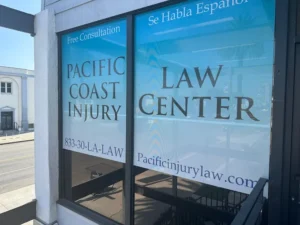
What Does a Personal Injury Lawyer in California Do — and Why You Should Hire One Today
Imagine this: you suffer an injury in a car crash that wasn’t your fault. Medical bills mount. You’re off work. The insurance adjuster keeps calling, pushing you to accept a quick payout. What feels like confusion is actually the start of a complex legal process.
This is where a personal injury lawyer in California steps in — not just as an option, but as an essential ally. In 2025, the legal and insurance landscape has evolved rapidly. AI, digital forensics, and advanced analytics now influence how evidence is handled and how compensation is won. If you’ve ever wondered what exactly a personal injury lawyer in California does, this guide gives you a complete, updated, and practical breakdown.
Why You Shouldn’t Go It Alone
Hiring a personal injury lawyer in California isn’t simply about having someone speak for you in court. It’s about leveling the playing field. Insurance companies have legal teams, adjusters, and investigators — all trained to minimize payouts. Without representation, even valid claims can be undervalued or denied.
According to a 2025 industry report by Clio, nearly 95% of personal injury cases settle before trial — but fair settlements require legal expertise, negotiation skills, and a firm understanding of policy limits and liability laws. With professional representation, clients typically secure higher settlements than those who go it alone.
Common Types of Personal Injury Cases in 2025
The core case types remain familiar, but modern technology and changing laws have expanded the range of claims.
Most Common Cases:
Motor vehicle accidents – car, motorcycle, truck, and rideshare collisions
Premises liability – slip and fall, negligent security, dog bites
Medical malpractice – surgical errors, misdiagnosis, birth injuries
Workplace and construction accidents
Product liability – defective tools, devices, and consumer products
Nursing home abuse or neglect
Data breach and privacy injury claims – a growing category in 2025
Emotional and psychological harm – including PTSD and trauma-related damages
These cases often overlap, especially when negligence stems from multiple sources such as employers, contractors, or product manufacturers.
What a Personal Injury Lawyer in California Actually Does
A personal injury lawyer’s in California job goes far beyond filing paperwork. They investigate, advocate, negotiate, and if necessary, fight for your rights in court.
1. Evaluating and Screening Claims
During the first consultation, your lawyer assesses your situation, reviews the evidence, and determines if your claim is strong enough to proceed. Most personal injury lawyer in California work on a contingency fee basis — meaning they only get paid if you win. This motivates them to take cases with genuine merit and real potential for recovery.
2. Gathering Evidence and Investigating the Case
Building a strong case starts with evidence. Lawyers collect:
Police or accident reports
Photos, videos, and drone footage from the scene
Witness statements and contact information
Medical records, doctor evaluations, and treatment history
Employment and wage documentation for lost income
Property damage and repair estimates
In 2025, many firms also use digital forensics, telematics data, and AI-based evidence review to uncover critical details that strengthen the claim.
3. Handling Insurance Companies
Insurance adjusters are trained to reduce payouts. A personal injury lawyer in California acts as your shield — managing all communication, interpreting policy language, and negotiating for the highest possible settlement.
They also prevent you from making costly mistakes, such as giving recorded statements that could harm your claim.
4. Sending Demand Letters and Filing Complaints
When your lawyer has built enough evidence, they issue a demand letter outlining:
How the injury occurred
Why the other party is liable
A detailed summary of your damages and financial losses
If the insurer refuses to negotiate fairly, your lawyer files a formal complaint in court. This legal document begins the lawsuit process and compels the defendant to respond, usually within 30 days.
5. Conducting Discovery and Working with Experts
During the discovery phase, both sides exchange evidence and take sworn testimonies (depositions). Lawyers may hire experts such as:
Medical professionals – to testify on injuries and prognosis
Accident reconstructionists – to explain how the crash occurred
Economists or vocational experts – to estimate lost earning capacity
6. Representing You at Trial
If settlement talks fail, your lawyer presents your case before a judge or jury. They handle:
Cross-examinations
Presentation of evidence and witnesses
Legal arguments
Jury instructions and closing statements
Even though most cases settle, trial readiness often pressures the opposing side into offering a fair deal.
7. Post-Trial Support and Enforcement
Winning a case doesn’t always mean immediate payment. Lawyers also help enforce judgments, negotiate post-verdict motions, and ensure you receive the compensation awarded.
What to Expect When Working with a Personal Injury Lawyer in California 2025
What You Can Expect:
Open communication and transparency about your case
Access to top experts and modern investigative technology
Strategic negotiation designed to maximize your settlement
Contingency-based billing — no upfront legal fees
What You Shouldn’t Expect:
Guaranteed outcomes — every case is unique
Instant results — serious cases take months or even years
Zero risk — while attorney fees are success-based, certain costs like expert reports may still apply
The process can be long and emotionally draining, but with an experienced lawyer, it becomes manageable and focused.
Personal Injury Law Trends in 2025
The personal injury field is evolving faster than ever, shaped by new tools, legal precedents, and consumer awareness.
AI-driven case analysis: Law firms now use AI to analyze medical data and predict settlement outcomes.
Drone evidence collection: Drones capture accident scenes and environmental conditions for later use in court.
Rise in psychological injury claims: More cases now recognize emotional trauma, PTSD, and anxiety as compensable damages.
Data breach lawsuits: With more cyber incidents, personal injury lawyer in California increasingly handle digital privacy injury claims.
Remote legal proceedings: Virtual depositions and hearings have become standard, reducing delays and costs.
Market growth: According to IBISWorld, the personal injury legal services market reached $61.7 billion in 2025, with over 50,000 law firms competing nationwide — highlighting the importance of choosing an experienced, reputable attorney.
FAQs About Personal Injury Lawyer in California
Q1: What exactly does a personal injury lawyer in California do?
A: They represent injured clients by investigating accidents, gathering evidence, negotiating with insurers, filing lawsuits, and seeking fair compensation for damages such as medical bills, lost wages, and emotional suffering.
Q2: How much do personal injury lawyer in California charge?
A: Most work on contingency — meaning they only get paid if you win. Fees typically range from 25%–40% of the recovered amount, depending on case complexity.
Q3: How long does it take to settle a personal injury case?
A: Simple cases can resolve in a few months, but complex ones involving serious injuries or multiple parties may take a year or longer to conclude.
Q4: What kinds of cases do personal injury lawyer in California handle?
A: They handle auto accidents, medical malpractice, slip and falls, workplace injuries, product liability, and more — including emotional distress and data privacy claims in 2025.
Q5: Do I really need a personal injury lawyer if the insurance company made me an offer?
A: Yes, it’s wise to consult one before accepting any offer. Insurance companies often propose lower settlements than your case is truly worth. A lawyer can assess your claim’s full value.
Conclusion
A personal injury lawyer in California does far more than represent you in court — they protect your rights, uncover hidden evidence, and ensure insurance companies treat you fairly. In 2025, where digital evidence and complex legal tactics dominate, having an experienced advocate is no longer optional — it’s essential.
If you’ve been injured through someone else’s negligence, remember that knowledge and timing matter. The right legal support can mean the difference between a minimal payout and the full compensation you deserve.
For more insights on how attorneys prepare and strengthen claims, explore How Personal Injury Lawyer in California Prepare a Case.


